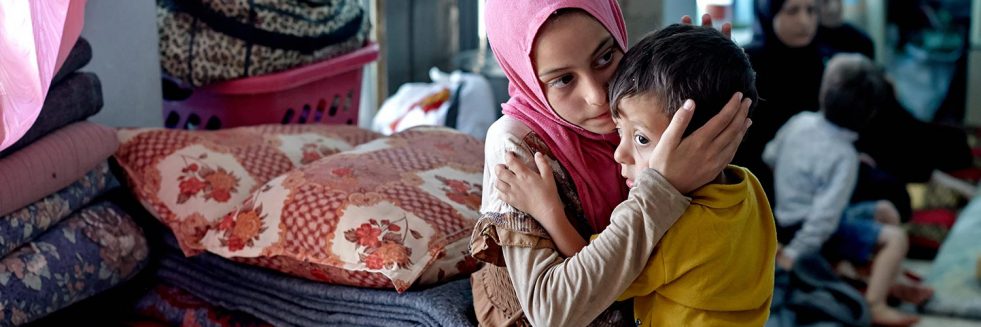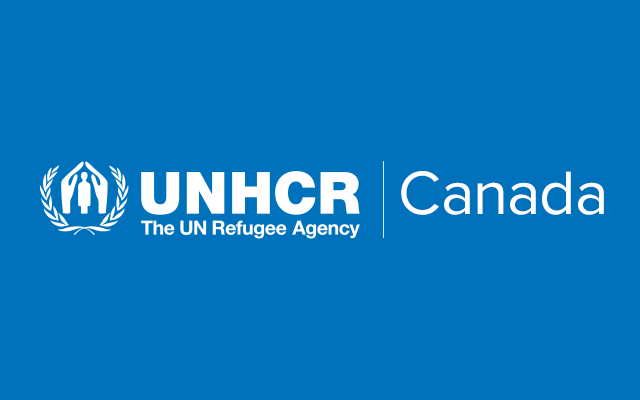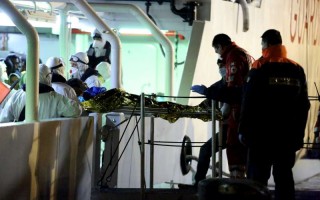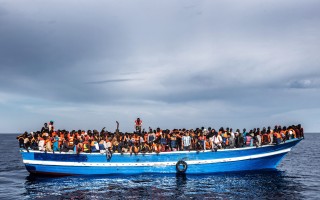GENEVA, June 9 (UNHCR) –Refugee and migrant arrivals to Europe across the Mediterranean so far in 2015 have moved above 100,000, with record numbers now arriving every day in the Greek islands.
Official figures show that as of 8 June a total of 103,000 refugees and migrants had arrived in Europe: 54,000 in Italy, 48,000 in Greece, 91 on Malta and 920 in Spain.
The latest tally includes around 6,000 migrants and refugees who were disembarked in southern Italy last weekend in a major rescue operation coordinated by the Italian Coast Guard and joined by navy ships deployed by Frontex and from Italy, Germany, Britain, Ireland, Spain and MOAS.
Record numbers of the refugees are arriving in flimsy rubber dinghies and wooden boats on the Greek island of Lesvos, putting an enormous strain on its capacity, services and resources.
Half of some 600 refugees, mainly from Syria, Afghanistan and Iraq, who arrive daily in Greece, now come ashore on this island. Arrivals on Lesvos have grown from 737 in January and 1,002 in February, to 3,348 in March. Almost 5,000 arrived in April and over 7,200 in May.
Hundreds of refugees leave the island for the Greek mainland every day after being identified, screened and registered. At present, however, there are around 2,200 to 2,500 waiting there for registration by the authorities.
A screening centre in the village of Moria, a former detention centre for migrants waiting to be deported, is currently housing over 1,000 refugees.
“This is more than twice its official capacity of 410 people. In addition, an education park in Kara Tepe is being used as temporary accommodation for around 1000 refugees,” UNHCR spokesperson Adrian Edwards told a press briefing in Geneva.
Two NGOs, Metaction and Medecins du Monde, are providing urgently needed services in Moria. Metaction is responsible for the identification, follow up and referral of unaccompanied children, while Medecins du Monde provides medical attention and psychosocial support. The Ministry of Interior’s First Reception Service is responsible for the registration of the new arrivals.
UNHCR has a permanent presence in the island’s main town, Mytilini, and is working with people at the Moria centre. UNHCR has been present on Lesvos and other Greek islands since 2011, supporting the authorities’ efforts to improve reception conditions and procedures, providing legal advice to newcomers about the asylum procedure in Greece, as well as their right and responsibilities, and identifying and referring people with specific needs such as unaccompanied children, people with disabilities, the elderly and victims of torture or trauma. In recent weeks, UNHCR has been distributing sleeping bags and hygiene kits to refugees in greatest need in Lesvos and other Greek islands.
To deal effectively with the challenges posed by the large number of arrivals in Lesvos and other Greek islands, UNHCR is calling for urgent reinforcement of personnel and resources of all the state services and civil society organisations dealing with the reception of refugees. We are also seeking increased support to the affected island communities.






